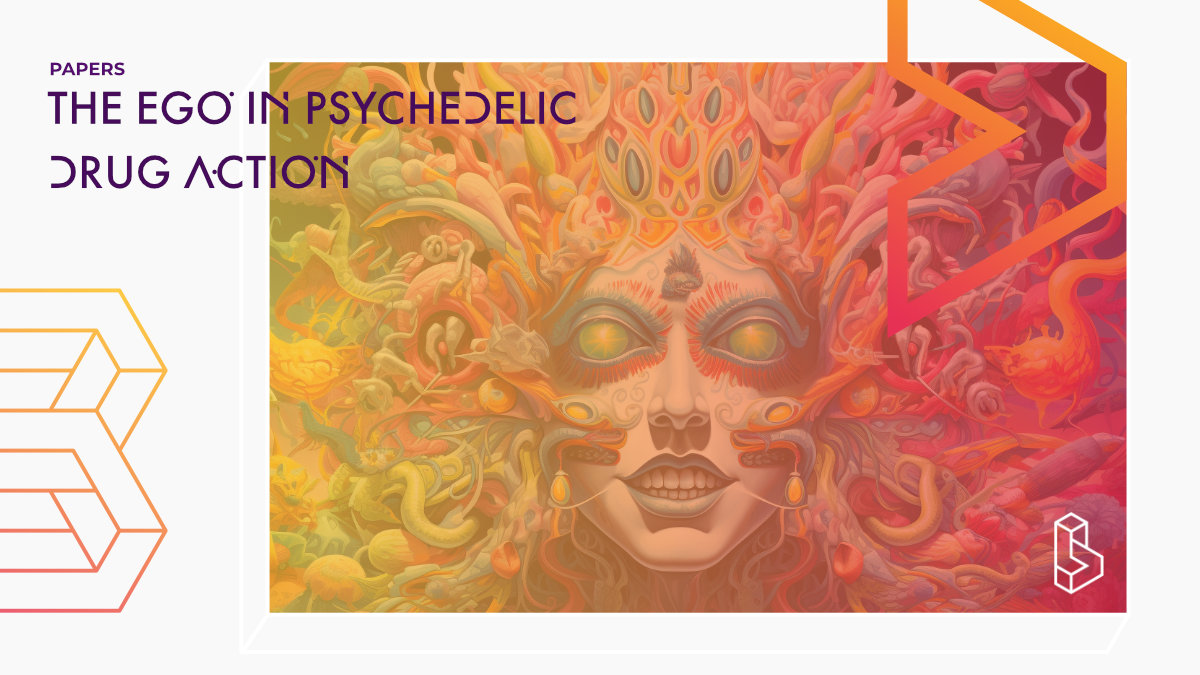This review (2023) focuses on the role of the ego in psychedelic-assisted psychotherapy (PAT), particularly through a psychodynamic lens. It argues that psychedelics induce regressed states of the ego, allowing for emotional integration of early life events that have shaped a person’s character and defence mechanisms. The paper posits that for lasting change, PAT must target the characterological core of the ego’s habitual patterns, and it suggests that this psycholytic approach is compatible with other forms of PAT like third-wave cognitive behavioural approaches (CBT/ACT).
Abstract of The ego in psychedelic drug action
“The ego is one of the most central psychological constructs in psychedelic research and a key factor in psychotherapy, including psychedelic-assisted forms of psychotherapy. Despite its centrality, the ego-construct remains ambiguous in the psychedelic literature. Therefore, we here review the theoretical background of the ego-construct with focus on its psychodynamic conceptualization. We discuss major functions of the ego including ego boundaries, defenses, and synthesis, and evaluate the role of the ego in psychedelic drug action. According to the psycholytic paradigm, psychedelics are capable of inducing regressed states of the ego that are less protected by the ego’s usual defensive apparatus. In such states, core early life conflicts may emerge that have led to maladaptive ego patterns. We use the psychodynamic term character in this paper as a potential site of change and rearrangement; character being the chronic and habitual patterns the ego utilizes to adapt to the everyday challenges of life, including a preferred set of defenses. We argue that in order for psychedelic-assisted therapy to successfully induce lasting changes to the ego’s habitual patterns, it must psycholytically permeate the characterological core of the habits. The primary working principle of psycholytic therapy therefore is not the state of transient ego regression alone, but rather the regressively favored emotional integration of those early life events that have shaped the foundation, development, and/or rigidification of a person’s character – including his or her defense apparatus. Aiming for increased flexibility of habitual ego patterns, the psycholytic approach is generally compatible with other forms of psychedelic-assisted therapy, such as third wave cognitive behavioral approaches.”
Authors: Tobias Buchborn, Hannes S. Kettner, Laura Kärtner & Marcus W. Meinhardt
Summary of The ego in psychedelic drug action
Psychedelic drugs have been used to treat psychological disorders, and it is widely accepted that the psychedelic experience revolves around the dissolution of the ego. However, the original psychodynamic formulation of the ego has received little attention in the psychedelic research community.
The ego-construct is often difficult to delineate from psychologically overlapping yet distinct constructs, and most psychometric measures used in the psychedelic research community focus on the phenomenology rather than the functionality of the ego per se. However, first evidence has been presented that the psychodynamic ego can inform computational and neurophysiological data.
This review aims to discuss key concepts related to the ego-construct, explore psychodynamic models of psychedelic drug action, and examine initial findings on the underlying neurobiology. It proposes that a disintegration of ego functions is one of the major processes underlying the psychedelic experience. Psychedelic-induced ego regression might be particularly well-suited for assisting psychotherapeutic treatments of disorders involving maladaptive routines, habits, compulsions, and chronic distortions of self-representation.
Find this paper
https://doi.org/10.3389/fnins.2023.1232459
Open Access | Google Scholar | Backup | 🕊
Cite this paper (APA)
Buchborn, T., Kettner, H. S., Kärtner, L., & Meinhardt, M. W. The ego in psychedelic drug action-ego defenses, ego boundaries, and the healing in regression. Frontiers in Neuroscience, 17, 1232459.

